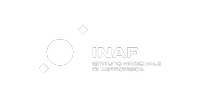StarDance: the non-canonical evolution of stars in clusters
Abstract: Thanks to their ubiquity, brightness, and the fact that they are made of stars with similar properties, star clusters have been used as astrophysical laboratories or test particles in an impressive range of research domains. However, we still do not understand fundamental details of their formation and evolution. In spite of recent technological progress, a list of unsolved problems and apparently isolated mysteries has been accumulating over time, some standing since decades. Among them, the existence of multiple stellar populations in globular clusters, with different chemistry, has challenged generations of researchers. They are not the result of classical galactic chemical evolution, mostly mediated by supernovae, and they jeopardize the use of clusters as simple stellar population templates for extragalactic studies. Given the mounting problems faced by the most favored scenarios to explain multiple populations, I think it is now time to revisit the foundations of our current thinking. New results by my team and by others show that: (i) the peculiarities in the chemistry of multiple populations are not limited to the oldest globular clusters; (ii) they can be transient in the evolution of individual cluster stars; and most importantly (iii) binary interactions and fast stellar rotation cannot be neglected in the study of star clusters and do have the capability to produce the observed chemistry. With StarDance I will test a very different scenario, based on a new hypothesis: that multiple stellar populations and five other non-canonical stellar populations (extreme horizontal branch stars and hot sub-dwarfs; extended main sequence turn-offs; red stragglers and sub-subgiants; lithium rich- stars; and blue stragglers) are caused by the interplay between stellar rotation and binary interactions, that are greatly enhanced in the special environment of star cluster, with spectacular results.
 StarDance has received funding from the European Union's Horizon Europe research and innovation programme under grant agreement No 101093572.
StarDance has received funding from the European Union's Horizon Europe research and innovation programme under grant agreement No 101093572.
Dettagli tecnici
INAF PI: Elena Pancino
Struttura INAF: OA Arcetri
Bando: ERC-2022-ADG
Riferimento contratto n. 101093572
Inizio: 01/11/2023
Durata: 60 mesi

